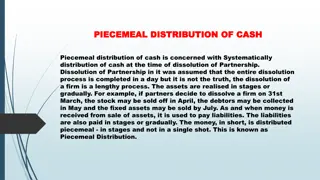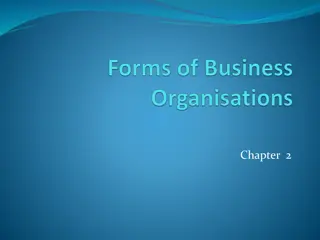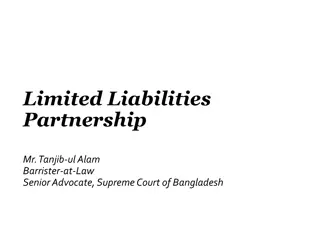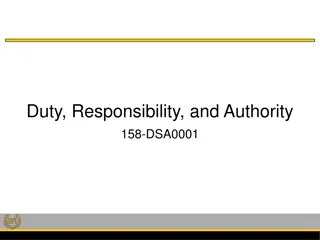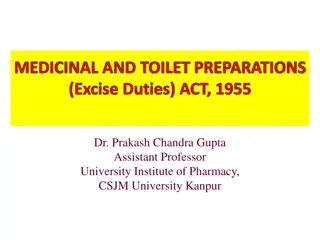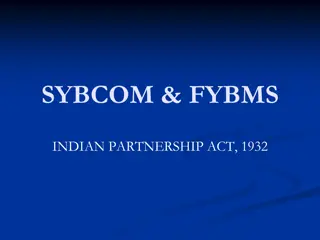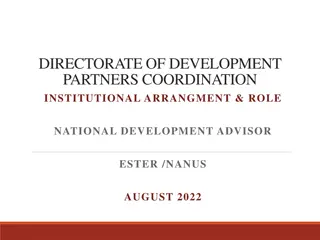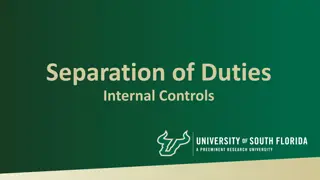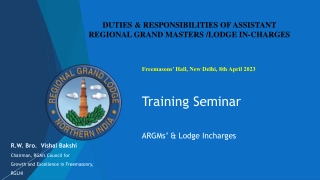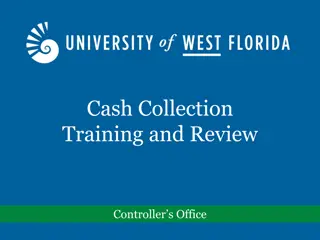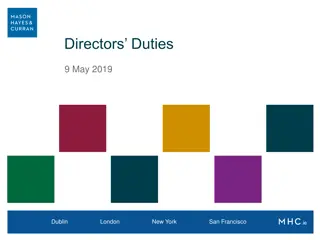Duties of Partners in a Business Partnership
Duties of partners in a business partnership include acting in absolute good faith, carrying on business for the greatest advantage, rendering true accounts and full information, indemnifying for fraud, and acting with due diligence. These duties emphasize trust, honesty, maximizing profit, and prudent decision-making in the interest of the firm and its partners.
Download Presentation

Please find below an Image/Link to download the presentation.
The content on the website is provided AS IS for your information and personal use only. It may not be sold, licensed, or shared on other websites without obtaining consent from the author. Download presentation by click this link. If you encounter any issues during the download, it is possible that the publisher has removed the file from their server.
E N D
Presentation Transcript
By Dr. Satyendra Kumar Singh Department of Law H.C.P.G. College, Varanasi
Duties of the Partners Duty of absolute good faith.(Sec.9) Duty to carry on business to greatest advantage.(Sec.9) Duty to render true accounts and full information.(Sec.9) Duty to indemnify for fraud.(Sec.10) Duty to act with due diligence .(Sec.12) Duty to indemnify for wilful neglect.(Sec.13) Duty regarding proper use of property.(Sec.16) Duty not to compete.(Sec.16)
Duty of absolute good faith Partners are bound to each other by the principle of utmost good faith i.e. Uberrimae fidei. This duty also introduces the element of a fiduciary obligation on a partner. This is a fundamental duty imposed upon partner by the Act, and cannot be excluded by mutual agreement to the contrary.
Duty to carry on business to greatest common advantage All the endeavour of a partner must be to secure maximum profit to the firm. Good faith requires that a partner shall not obtain a private advantage at the expense of the firm. Illustration Where a partner was authorised to sell property of the firm for Rs.6000, and he sold it for much higher price and concealed the excess price, he was bound to share it with his co-partner. [Dunne Vs. English. (1874) LR 18 Eq. 524]
Duty to render true accounts and full information This duty of a partner is based on the principle of Uberrimae fidei (utmost good faith), and calls upon a partner to make full and frank disclosures of all facts affecting the affairs of the firm.
Duty to indemnify for fraud Every partner shall indemnify the firm for any loss caused to it by his fraud in the conduct of the business of the firm. The obvious principle underlying this duty is to induce partners to deal honestly with all customers of the firm . The liability for fraud cannot be excluded by any agreement to contrary, for it would be opposed to public policy to exempt a person from the consequences of his own fraud.
Duty to act with due diligence The law does not lay down the standard of diligence , but since every partner is deemed to be the agent of every other partner, it can safely be said that he should act with as much diligence as is expected of an agent under sec.212 of the Indian Contract Act,1872.
Duty to indemnify for wilful neglect Every partner to indemnify the firm for any loss caused to it by his wilful neglect in the conduct of the business of the firm. The negligence should be wilful . A mere neglect i.e. mere inadvertence or an accident is not sufficient; there must be a deliberate, intentional and purposeful commission or omission of an act. An act done in good faith and bona fide intention cannot be termed a wilful neglect.[Cragg Vs. Ford (1842) 1 Y & C.Ch.Cas.280]
A partner cannot be held liable for a mere error of judgement , provided that he used such skill and judgement as he possessed.[S.K.Bondopadhya Vs. Man Gobinda AIR 1919 Pat. 386] Unlike the duty to identify for fraud (Sec. 10), a partner can contract himself out from duty to indemnify for wilful neglect.
Duty regarding proper use of property If a partner derives any profit for himself- a) From any transaction of the firm, or b) From the use of i) the property of the firm, or ii) the business connection of the firm, or iii) the firm name- he must account for the profit and pay it to the firm.
Duty not to compete If a partner carry on any business of the same nature as and competing with that of the firm, he shall account for and pay to the firm all profits made in the competing business. This duty is , however, subject to any variation made by the partnership deed. Thus, agreement between the partners may allow them to carry on any business whatsoever, whether competing or not. Case Law: Pulin Vs. Mahindra [AIR 1921 Cal 722] Trimble Vs. Goldberg [(1906) AC 494] Muhammad Khalilur Hasan Vs. Janardan Pd. Singh [AIR 1934 Pat 264]





